Photographs: Desmond Boylan/Reuters Prasanna D Zore
“If you are a young Indian today instead of just going with the flow it is the right time to sincerely think what your passions are, and pursue it for a few years… we are the first generation in India for whom the risk of doing anything we are passionate about is almost zero.”
That bit of advice comes from 28-year-old Krishna Ramkumar who has practised what he preaches for three years now.
Krishna is a gold medallist from IIT Bombay, who studied chemistry. Akshay Saxena, a fellow IITian two years his senior, studied chemical engineering. The two have started Avanti, an organisation that has offered quality education to almost 700 students from low-income groups across seven cities in India.
“By 2019 we want to offer free and affordable high quality education to 20,000 students from India,” Krishna says about Avanti’s five-year plan.
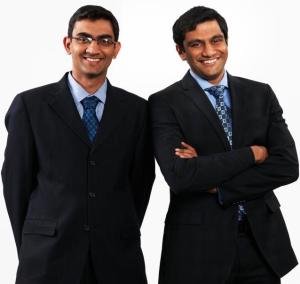 The two IITians, who worked as consultants with the Boston Consulting Group before starting Avanti, are trying to develop a viable business model that caters to bright, low-income Indian students who cannot pay at all, or who can pay affordable prices, for good quality education.
The two IITians, who worked as consultants with the Boston Consulting Group before starting Avanti, are trying to develop a viable business model that caters to bright, low-income Indian students who cannot pay at all, or who can pay affordable prices, for good quality education.
Avanti is creating “an innovative and path-breaking education model that can be non-profit and also work on a for-profit basis for economically disadvantaged sections. We want to impart education to the under-served communities at affordable price points,” says Krishna.
To achieve their goal they put in long working hours and took a substantial pay cut, but they say this is inevitable if you want to solve a huge problem like education for under-served communities in India.
“The reward is just hope (that one day they would help lakhs of poor Indians get high quality education at affordable costs),” says Krishna, who now earns 40 per cent less than he did at Boston Consulting Group (BCG).
Photo: From left: Krishna Ramkumar and Akshay Saxena, co-founders, Avanti
Why education...
Image: In Chennai Avanti teaches over 200 corporation school students - more than 75% are girls.Photographs: Courtesy: Avanti
In 2010 when Krishna was at BCG and Akshay at the Harvard Business School pursuing an MBA, the two often communicated over e-mail about the education sector in India. They would often rue how little was being done in the field of higher education. They wanted to plug the gap between higher secondary and higher education.
“The idea was could we help high potential students from low-income homes? Can we give them an equal shot at getting into a top college or institution, not necessarily an IIT?”
With this intention Krishna quit his job at BCG and Akshay took absence of leave from the Harvard to set up Avanti in late 2010.
By 2011, they had selected their first batch of 100 bright Class XII students from low-income families. They were given tuitions in physics, chemistry and maths and trained for the joint entrance examination (JEE) that is the gateway to the prestigious IITs and other top engineering colleges in India.
A new study model...
Image: Students collaborate extensively in Avanti classrooms and work on problem sets togetherPhotographs: Courtesy: Avanti
Avanti managed to tie up with IIT coaching institutes across seven cities – Delhi, Mumbai, Kanpur, Rourkee and Madras, where there is an IIT, and Dehradun and Pondicherry, which are closer to IIT Rourkee and IIT Madras respectively. In 2011 these coaching classes absorbed 80 students for free.
An experiment was tried out with 20 students at the Pondicherry centre, who were coached by student volunteers from the IITs for the Class XII exams and JEE. There was no real teacher in the classroom. The students were encouraged to study by forming groups. Each student was free to select a topic to study based on her or his aptitude.
“In 2012 what we saw was that students enrolled at Pondicherry were doing better than students enrolled with coaching classes. In the absence of teachers, peer learning seemed to do better than in a regular conventional class,” says Krishna.
Avanti today follows both the models of imparting quality education to India’s poor.
Not-for-profit vs for profit
Image: Avanti has three centres in Tibetan refugee settlements providing an excellent science education in remote communitiesPhotographs: Courtesy: Avanti
While Avanti expanded at a decent clip over the next three years, the expansion had to be funded and good quality talent had to be hired to run different centres.
While 80 per cent of students at Avanti are still taught on a not-for-profit basis, the two co-founders decided that they had to prove that imparting education at an affordable price point could be easily scaled up and spun into a viable business model.
Avanti therefore also offers training programmes at one-fourth the market price. Payment also acts as an incentive.
“Both to attract talent and to prove the business viability of the affordable peer-learning model, we decide to go for profit,” states Krishna.
Krishna is also a firm believer in the thesis propounded by Mohammed Yunus, founder of Bangladesh’s Grameen Bank, that any problem in the world can be thought of as a business problem, and hence should have a market-based solution and not one based on charity.
Start-up challenges...
Image: Student mentors from the IITs spend one on one time with Avanti studentsPhotographs: Courtesy: Avanti
The main challenge,” says Krishna, “is to attract ten good people to work for you, to run your operations.”
The perception that you get paid low salaries in the social sector hindered their effort to find talent. “While it is a fact that you don’t get paid as well as in the corporate sector, it is nowhere as bad as it is made out to be,” says Krishna.
He says social sector entrepreneurs earn 30 to 40 per cent less than their similarly talented corporate compatriots.
While it was difficult to get good teachers initially, it is much easier now because “it is getting very exciting to work in the education sector.”
Advice to young Indians...
Image: Every year 10,000 students in government and low cost private schools take Avanti selection testsPhotographs: Courtesy: Avanti
Young Indians and entrepreneurs, or those wanting to work for a social cause they are passionate about run no risk of failure, Krishna assures.
“If you are a young Indian today, instead of just going with the flow it is the right time to sincerely think what your passions are, and pursue it for a few years,” he advises.
If something doesn’t work out you can go back to what you were doing before, but there is no dearth of good opportunities for people with a good education, he says.
“In many ways we are a very fortunate generation. Most of us who had good education are assured of a reasonable job and we don’t have to worry about money.
“I think we are the first generation in India for whom the risk of doing anything we are passionate about is almost zero. There is really no risk of failure.”

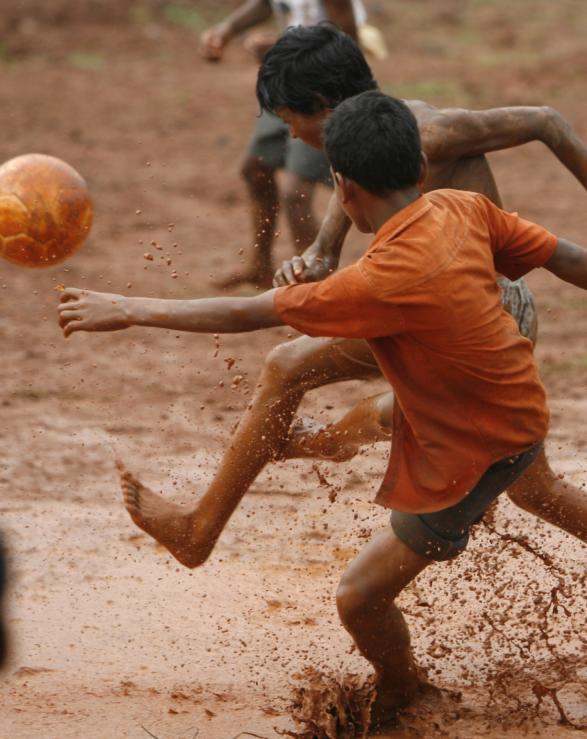
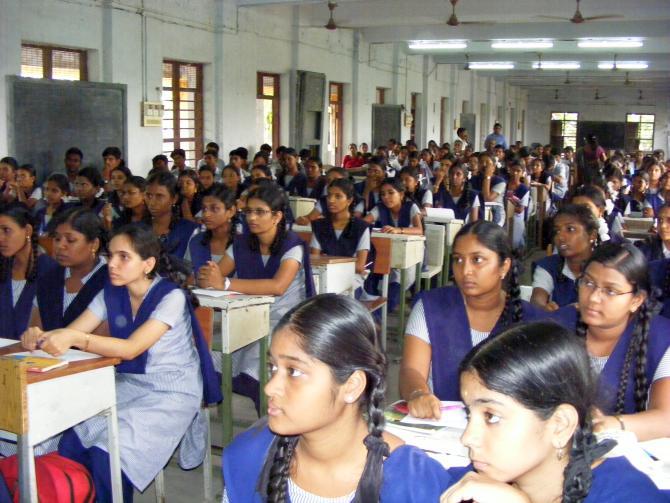
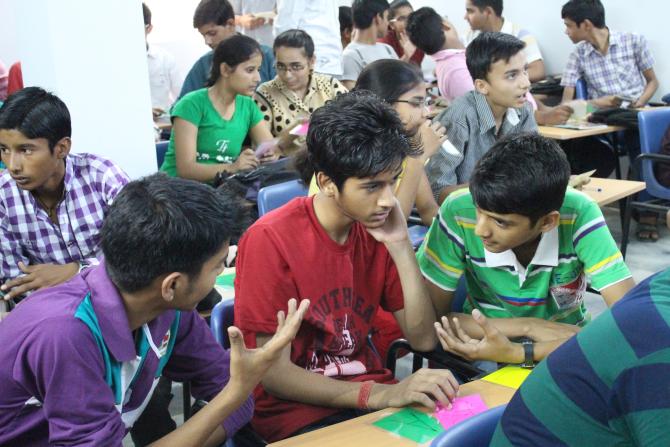

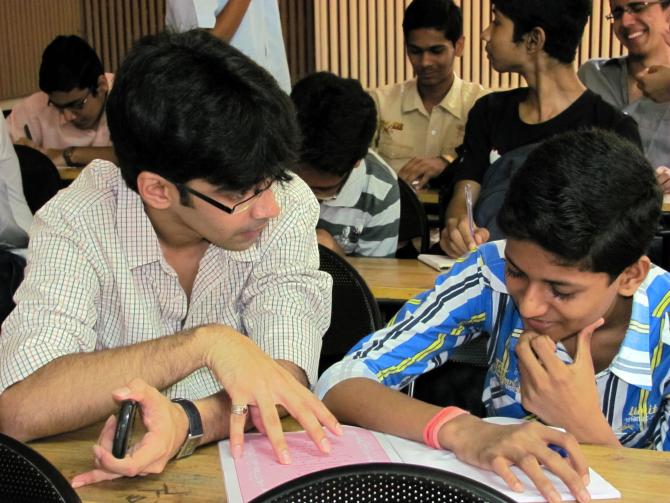
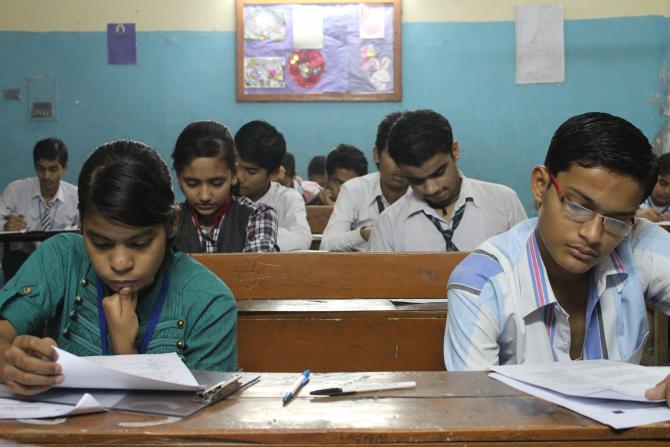
Comment
article